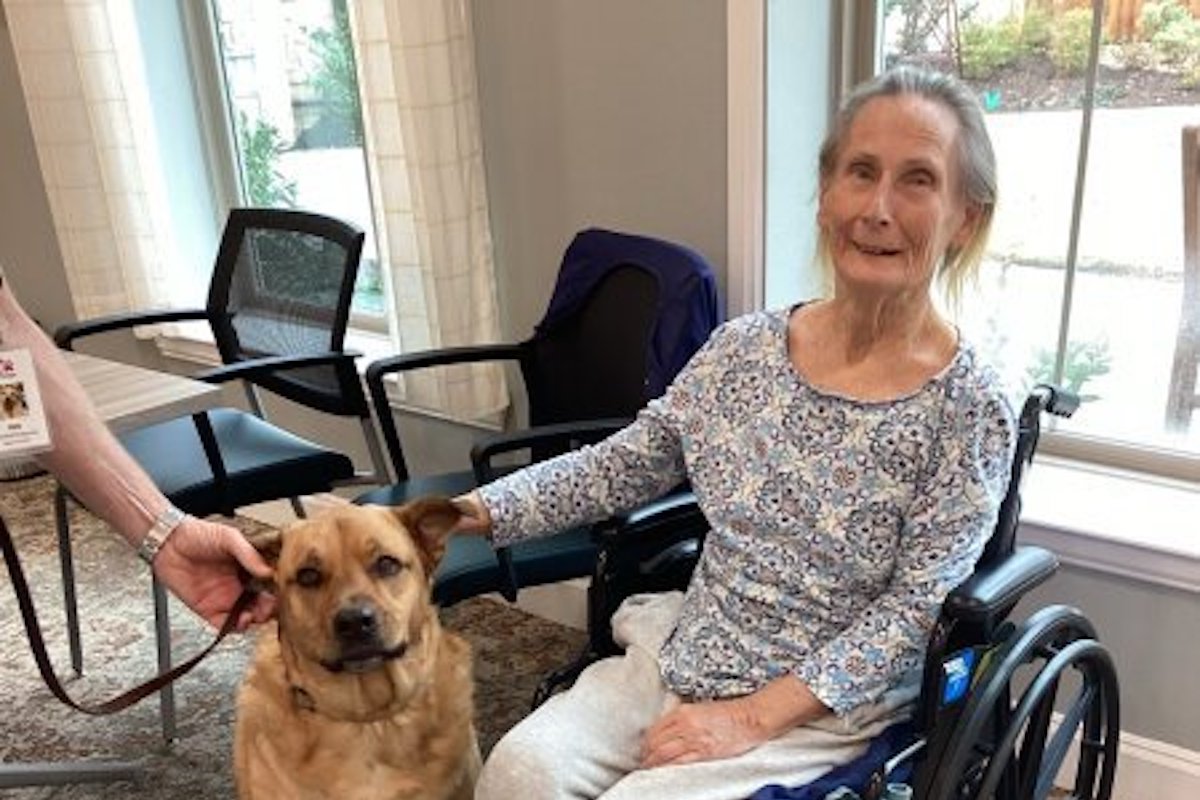A suspicion or diagnosis of Alzheimer’s or dementia in a loved one can be difficult for families, and there is much to be learned. Understanding dementia stages and their progression is vital when family members need to provide the best care possible at home or in a memory care community.
While at-home screening tools for dementia are available, be cautioned that receiving a proper diagnosis from a doctor is critical.*
Still, it makes sense to become familiar with the 7 stages of Alzheimer’s and dementia assessment scales like the Functional Assessment Staging Tool (FAST). That way, you’ll recognize symptoms and know what to expect.
StoneCreek of Copperfield in Houston, TX, provides an exceptional senior care community near Cypress. Memory care is one of our specialties, and we welcome seniors living with dementia. We’re happy to explain more about memory loss, stage progression, and FAST.

Understanding Alzheimer’s and Dementia
The terms Alzheimer’s and dementia are used interchangeably, but Alzheimer’s is only one form of dementia. These forms of memory loss are not typical aspects of the aging process.
Dementia is an umbrella term for a decline in cognitive ability and includes symptoms such as:
- Behavior changes
- Confusion
- Difficulty speaking
- Difficulty understanding
- Memory loss
- Poor judgment
Each type of dementia has its own characteristics and affects individuals differently. Alzheimer’s is caused by the loss of brain cells from abnormal plaques and tangles. It’s the most common form of dementia, accounting for 60 to 80 percent of all cases.
The other most common types of dementia are:
- Frontotemporal dementia
- Lewy body dementia
- Mixed dementia
- Vascular dementia
While the average memory care center might have limited services, StoneCreek of Copperfield offers passionate, personalized care – we are proud to be nationally recognized, certified dementia practitioners.
About The FAST Scale for Dementia
The FAST scale is a tool developed by Dr. Barry Reisberg to assess the degree of cognitive impairment in people with dementia. It divides dementia into seven stages, ranging from normal functional ability to severe cognitive decline.
FAST is a seven-stage system that assesses one’s level of functioning and capability to perform activities of daily living (ADLs). It focuses more on that than stages of cognitive decline.
The assessment offers a standardized method of evaluating functional decline, so healthcare professionals and caregivers can anticipate needs and provide appropriate support.
Each stage evaluates:
- Ability to perform everyday tasks
- Activities of daily living
- Language skills
- Memory and memory loss
- Mobility levels
- Social behavior
The 7 Stages Of Alzheimer’s
Also known as The Global Deterioration Scale, the 7 stages of Alzheimer’s covers functioning and cognitive decline for this form of dementia:
Stage 1: No Cognitive Decline
There are no dementia symptoms or any other form of cognitive decline. Individuals exhibit typical behaviors and can perform daily activities without assistance.
Stage 2: Very Mild Cognitive Decline
Individuals may show mild forgetfulness at this stage. Remembering recent events or conversations may be difficult, but they retain most cognitive abilities. Minor deficits in reasoning skills may also become apparent.
Stage 3: Mild Cognitive Decline
Concentration and understanding abstract concepts become increasingly difficult during Stage Three. Individuals in this stage experience significant memory lapses, like forgetting what they ate for breakfast. They may also need help with complex tasks such as balancing checkbooks or managing finances.
Stage 4: Moderate Cognitive Decline
In this stage, individuals need help with basic tasks like dressing themselves and may display confusion when presented with new information or unfamiliar situations. Memory loss further increases, and they cannot recall recent events or personal life stories without prompts from caregivers.
Stage 5: Moderately Severe Cognitive Decline
Stage five is typically considered middle-stage dementia. It represents a substantial decrease in functioning compared to early stages in the FAST scale for dementia. Individuals often require assistance with basic self-care tasks such as bathing, eating, and grooming. Many display intense confusion when confronted with new stimuli or environments outside the home.
Memory loss worsens significantly during this stage, and communication becomes increasingly difficult.
Stage 6: Severe Alzheimer’s
In the sixth stage of Alzheimer’s, memory becomes increasingly impaired, making it impossible for the individual to recognize family or recall personal information. Symptoms increase rapidly:
- Hallucinations
- Anxiety and frustration
- Mobility loss
- Severe personality changes
Stage 7: Late Stage
As brain cells further decline, people in the late stage find it difficult to participate in basic daily activities in any capacity – all tasks require round-the-clock assistance. People in stage seven are increasingly vulnerable to pneumonia and other infections and the possibility of eventual hospice care.
StoneCreek of Copperfield can provide much-needed assistance for those with severe memory loss when loved ones require full-time, 24-hour care.
Compassionate Memory Care Near Cypress, Texas
The last two stages of Alzheimer’s are increasingly challenging. With dementia progressing, memory deteriorates severely, and loved ones need to consider difficult decisions concerning care. StoneCreek of Copperfield is a senior living community in northwest Houston near Cypress offering independent living, assisted living, and memory care.
Residents with Alzheimer’s and dementia find meaning and a chance to live in the moment in The Cottage. Our calming area for memory care is a resource for family members struggling to support a loved one – our dementia care team encourages independence and provides compassionate care through ongoing training.
Contact Comforting Dementia Care in Houston, Texas
Find complete and compassionate care for a loved one with dementia at StoneCreek of Copperfield. Contact a senior living specialist near you to arrange a tour.
*This article is for reference only. Please consult with a doctor for more about dementia stages and the FAST scale.


